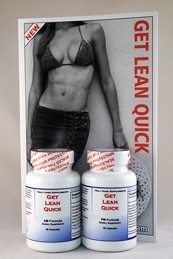| Free Weekly Diet and Fitness Tips Newsletter |
 Click Here To Order Now!
|
Nutrition & Healing - Varicose Veins
By Dr. Jonathan V. Wright
Sometimes varicose veins are "in the family" and impossible to get rid of by nutritional means. If varicose veins are in your family, but you don't have them yet, some of the nutritional therapies you'll read in this report can also help to prevent them. If your varicose veins are just starting, it's very possible to strengthen the veins considerably, and slow their sign significantly. If your varicose veins are bad and hurting, very likely you can help the pain to go away.
"Mainstream" medical treatment for varicose veins is surgical removal, called "vein stripping," or injections called sclerotherapy, into the veins which cause them to collapse and "scar down."
Nutritional treatment starts with adequate fiber in the diet. Insufficient fiber causes increased pressure within the abdomen, which in turn creates excess "back" pressure on the veins which return the blood from the legs, contributing to varicosities. Dietary fiber is found in whole grains, beans, root vegetables, and even in supplements such as psyllium seed available in natural food stores. Make sure there's plenty of fiber in your diet!
Flavonoids (often called "bioflavonoids") are a definite help. Flavonoids are found particularly in citrus and in blue, purple, and red fruits and vegetables, such as blueberries, blackberries, plums, purple cabbage, and so on. Flavonoid containing foods should be included in the daily diet, but supplemental quantities are always helpful too. I recommend 1000 milligrams two or three times daily. flavonoids almost always work with vitamin C in our bodies. I usually recommend 1gram of vitamin C, twice daily..
Several herbal remedies help relieve veins. Centella asiatica [sen-tell-uh azy-at-ik-uhl (an herb that's sometimes also called "gotu kola") strengthens the connective tissue in blood vessel walls. 60 to 120 milligrams daily of a 40% standardized extract is advisable.
"Butcher's broom" (ruscus aculeatus) [rhus-kuss a-cooly-at-us] can increase the "tone" of blood vessel walls, helping than to function better. If you can find capsules containing 20 to 40 milligrams of ruscogenin [rhus-kojenn-in], use them twice daily.
Pycnogenols [pik-nah-jenn-alls] strengthen the Collagen in blood vessels, and protect their elastic fibers. A supplemental source is necessary, as pycnogenols are not widely distributed. Two major sources are grape seeds, and the bark of Mediterranean pine. I usually recommend 25 to 75 milligrams of pycnogenols daily.
Horse chestnut has a long history of use in folk medicine to treat varicose veins. However, it may be wisest to look for and use eternally applied preparations, as horse chestnut can be toxic in a very small number of individuals.
Many people have found that vitamin E, 400 to 800 units daily, often reduces pain when varicose vein are hurting.
Because of differences in age, sex, metabolism or potential allergy, these diet and supplement therapies may not be suitable for you. Consult a health care professional skilled in nutritional and natural therapies. To locate one near you, you might call the American College of Advancement in Medicine at 800-532-3688 or the American Association of Naturopathic Physicians at 206-323-7610.
Free Weekly Diet and Fitness Tips Newsletter
full of useful information, exercise tips, diet tips
and inspiration for us all, join today!
Click Here For Free Diet And Fitness TipsVitaWise.com Success Stories FAQ Nutrition Laws of Weight Loss About Cybergenics Disclaimer